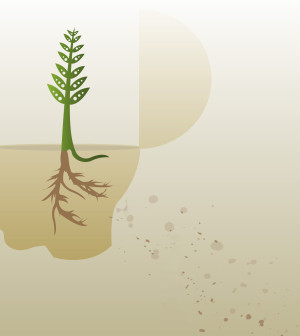- 7 Best Breads for Maintaining Stable Blood Sugar
- Gelatin vs. Collagen: Which is Best for Skin, Nails, and Joints?
- The Long-Term Effects of Daily Turmeric Supplements on Liver Health
- Could Your Grocery Store Meat Be Causing Recurring UTIs?
- Are You Making This Expensive Thermostat Error This Winter?
- Recognizing the Signs of Hypothyroidism
- 10 Strategies to Overcome Insomnia
- Could Artificial Sweeteners Be Aging the Brain Faster?
- Techniques for Soothing Your Nervous System
- Does the Water in Your House Smell Funny? Here’s Why
Loved Ones Stay Attuned to Spouse’s Emotions, Study Says


SATURDAY, Sept. 14Older adults are less able to read emotions on their partner’s face, but they do not lose the ability to make judgments about their spouse’s emotions based on knowledge gained during their years together, according to a new study.
“When judging others’ emotions in real life, people do not exclusively rely on emotional expressions,” explained the study’s lead researcher, Antje Rauers of the Max Planck Institute for Human Development in Germany. “Instead, they use additional information, such as accumulated knowledge about a given situation and a particular person.”
The study, released online in advance of print publication in the journal Psychological Science, involved 100 couples. Some were between 20 and 30 years old, while others were between 69 and 80 years old. The participants were first asked to identify specific emotions on various faces.
“We started by replicating past research, showing that older adults are typically worse than younger adults at interpreting emotions through facial expressions,” Rauers noted in a news release from the Association for Psychological Science.
The couples were then asked to use their cellphone to record their own emotions as well as the feelings of their partner six times a day over the course of two weeks.
Sometimes, couples were together so they could see each other’s facial expressions. The couples were often apart during the day, however, and had to estimate how their spouse felt at that particular moment.
The study showed the older couples were less able to read their partner’s facial expressions than the younger couples. But the researchers noted there were no age differences in how well the couples estimated how their partner felt when they were not together. They concluded some brain processes linked to understanding and empathy between couples remain stable with age.
“Reading emotional expressions may become more difficult with age, but using one’s knowledge about a familiar person remains a reliable strategy throughout adulthood,” Rauers said in the news release.
“This is really good news, given that the overwhelming majority of research findings testifies an age-related decline in many competencies,” Rauers said. “Our data suggest that knowing your loved ones well is an important resource that stays available throughout life.”
More information
The U.S. Department of Health and Human Services has more about the aging brain.
Source: HealthDay
Copyright © 2026 HealthDay. All rights reserved.










